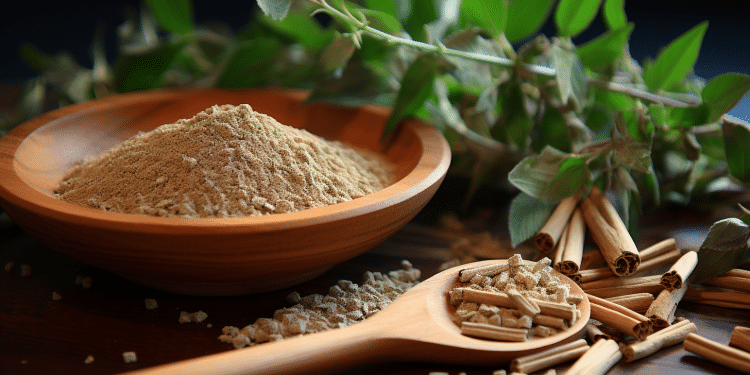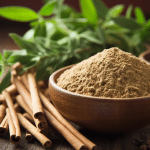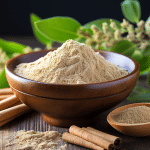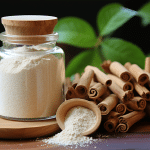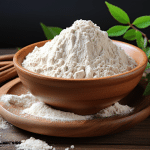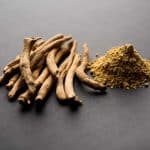If you or someone you know is struggling with ADHD, there might be a natural solution that could help. Ashwagandha is an herb that has been used in India to treat various conditions for centuries. Recently, it has been shown to be effective at decreasing symptoms of ADHD. In this blog, we discuss the benefits, as well as side effects, of using Ashwagandha for ADHD.
An Intro to Ashwagandha
Ashwagandha is an Ayurvedic herb which has been used to cure various conditions for centuries. It is grown in the drier regions of India, Middle East, and Africa. But, where it is grown in India, it has been used medicinally for literally thousands of years. The roots and leaves of the plant are used in making various products including powders, capsules, and extracts.
In Sanskrit, Ashwagandha means “smell of horse” thought to reference its powerful, earthy scent. The herb is sometimes also called Indian ginseng or winter cherry.
Studies show that ashwagandha can help increase focus and attention in those suffering from attention deficit hyperactivity disorder. Moreover, ADHD with Ashwagandha is a natural way of treating symptoms, which is also safe to use over long periods of time. In fact, each part of Ashwagandha plant is helpful and has some medical value. If you are looking for a natural way to treat ADHD, then Ashwagandha might be something to give a shot.
Is Ashwagandha Good for ADHD?
Yes, Ashwagandha can be good for ADHD. It’s been shown to improve attention span in those suffering from ADHD. Ashwagandha for ADHD is a natural supplement shown to effectively lessen hyperactive disorder symptoms in children and adults. The herb works by increasing levels of dopamine and norepinephrine, which are neurotransmitters involved with attention and focus. Ashwagandha is also thought to have anti-inflammatory effects, which can help to lessen symptoms of ADHD. It works by decreasing oxidative stress and inflammation in the brain.
Researchers found Ashwagandha is effective at reducing symptoms of ADHD, including, inattention, hyperactivity, impulsivity, anxiety, and depression. Studies also suggest that Ashwagandha may enhance cognitive functions of children suffering from ADHD. In addition, it is believed that the herb may help to improve the quality of sleep, which is often disturbed in individuals with ADHD. If you are considering using Ashwagandha to treat ADHD, it is important that you talk with a health care provider first. This is because the supplement may interact with certain medications, and is not right for everyone.
Who should not take Ashwagandha
It is believed that Ashwagandha is safe for most people if taken up to three months. However, there are certain groups of people that need to avoid taking Ashwagandha.
These include, pregnant women should avoid Ashwagandha as it can stimulate their uterus. People taking medications for diabetes should avoid Ashwagandha because it can lower the sugar levels. People with thyroid problems should avoid Ashwagandha because it can disrupt how the body uses thyroid hormones. It can raise high blood pressure in people taking medication for blood pressure.
So, those are people that you need to avoid taking Ashwagandha. If you fall into any of these groups, you need to speak with your physician before taking Ashwagandha. In fact, it is always good to speak with your doctor before taking any supplements.
This is especially true if you have a health condition or are taking medication. There are some side effects associated with taking Ashwagandha, but these are usually mild. Also, remember that this herb is usually considered safe if taken in appropriate amounts.
The most common side effects include stomach upset, diarrhea, dizziness, headache, vomiting, and liver problems. These side effects can be avoided by starting off at a lower dosage of the herb and increasing gradually. If you experience any of these side effects, discontinue taking Ashwagandha and speak with your physician. Also, the herb is believed to make certain health conditions worse.
Therefore, use Ashwagandha sparingly, or avoid it entirely, if you suffer from any of the following conditions. If you have, hypertension, diabetes, hypothyroidism, autoimmune diseases, or cancer, then Ashwagandha is something that you should avoid.
Overall, it is a natural, effective way of treating ADHD symptoms. However, like any therapy, there are risks and side effects that can occur. Therefore, it is essential that you speak with a physician before taking Ashwagandha or any other herbs to treat ADHD.
How Mush Ashwagandha Should I Take Daily for ADHD?
The doses of Ashwagandha for ADHD are still being studied. However, below is some information related to ashwagandha dosages which has been found out till date. It is important to remember that every individual can respond differently to the herb, so the best thing is to start off at a lower dose and gradually increase it if necessary. The recommended dosage for adults is 300-500 mg daily. For children, the recommended dosage is 100-200 mg per day.
It comes in a variety of forms, such as capsules, pills, powders, and tinctures. You can also consume it in tea form, boiling a teaspoon of the powder with water for around ten minutes. This should be taken two or three times per day.
So, those are some dosage details related to Ashwagandha for ADHD. If you or your child is suffering from ADHD, you may want to give this natural medicine a try. Just be sure to start off at a lower dosage and gradually add more if needed. Remember to talk with your health care provider before starting any new treatments. Also, be sure to keep an eye on reactions and side effects from Ashwagandha, particularly for children. If you experience severe side effects, discontinue using the herb immediately and seek medical advice.
